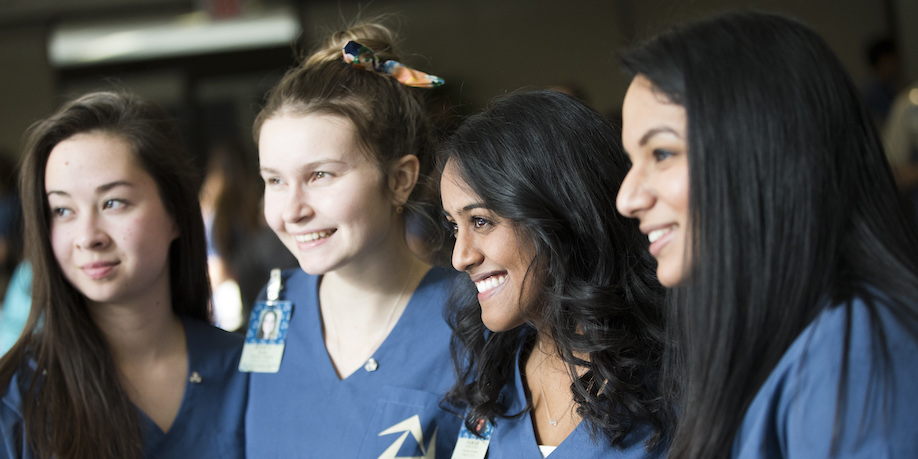Undergraduate FAQs

Dont see your question here? Check out Central Placement Office FAQs for more information on your clinical placements.
Collaborative Nursing Degree Program (BScN)
Yes. Students may apply a maximum of two psychology courses to meet their lower-level liberal studies requirements. There is no restriction on using psychology courses to fulfill upper-level liberal studies requirements.
If you drop a required corequisite course, you will not be permitted to complete all other corequisite courses.
You must submit a (PDF file) Student Medical Certificate and Academic Consideration Document Submission form [PDF] within three business days of the missed activity. The medical certificate must be completed and stamped by a physician. Submit your completed forms to a student affairs coordinator.
Post-Diploma Degree Completion Program (BScN) – Full Time
Applicants are notified throughout the spring and summer terms starting in early May.
Yes, you can. The Post-Diploma program requires that you take three upper-level liberal courses and two professionally-related courses.
We recommend not taking more than two to three elective courses. Remember that you cannot choose courses on the Restricted List for the Upper Level Liberal Courses. You can also take Ethics and Health Care (CPHL 302) during the spring or summer term.
To learn more, check out the complete list of Liberal and Professionally-Related Courses, and view course dates and times in the continuing education calendar.
Classes in year one during the fall and winter terms take place all day on Mondays, Tuesdays and Wednesdays. You will not have class on Thursdays and Fridays.
Classes in year two in the fall term take place all day on Mondays, Tuesdays and Wednesdays. You will not have class on Thursdays and Fridays, as these days are protected for clinical practice placements. However, you will be expected to follow your preceptor's schedule. Therefore, you will be expected to attend practice on weekends, evenings and nights as well as days. If your schedule permits, you can also attend practice on other days of the week.
Classes in year two in the winter term take place all day on Mondays. You will not have class on Tuesdays, Wednesdays, Thursdays and Fridays. These days are protected for clinical practice placements. However, you will be expected to follow your preceptor's schedule. Therefore, you will be expected to attend practice on weekends, evenings and nights as well as days. If your schedule permits, you can also attend practice on other days of the week.
For every hour in class, you will need at least one to three hours outside of class to read, review and study academic material. Past students from bridging programs have reported the program to be rigorous. You may want to work fewer hours than usual to accommodate your classes and review time.
As a full-time undergraduate student, you can access all campus resources provided by Student Affairs, including Tri-Mentoring, the Centre for Student Development and Counselling, and Student Learning Support. You can also access numerous workshops and online resources to help you succeed in your courses.